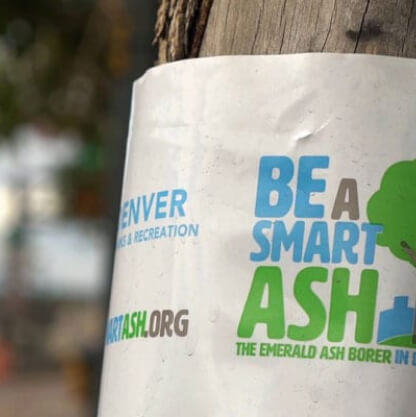2019 PR Disasters, Fails, Misses & Mistakes
Editor’s Note: This is a mid-year recap. You can view the full 2019 list of PR disasters here.
The year is barely halfway over, but we already have some blue-chip contenders for 2019’s biggest PR disasters. Among them:
BOEING – Boeing, by a wide margin, has had the worst 2019 so far. Following plane crashes by Lion Air and Ethiopian Airlines that killed 346 people, countries around the globe began grounding Boeing’s 737 Max. Then, air travel authorities worldwide officially grounded the plane in March. Boeing has since been working to fix its flight control software, which is thought to have played a role in the crashes. Four months later, the crisis remains unresolved. The most damaging crises are those where you remain stuck without a clear resolution – think Malaysia Airlines when cable TV news covered its missing Flight 370 for months on end. Boeing finds itself in a similar situation, since it is unclear when its 737 Max planes may get the green light to fly again. Meanwhile, media are penning sidebar stories about the history of quality complaints at the facility that produces the 737 Max and whether flyers will trust the plane when it does return.
ROBERT KRAFT – The incredibly successful owner of the New England Patriots saw his personal life turn into a bad made-for-TV movie when he was charged “with two counts of soliciting sex as part of a wide-ranging investigation into prostitution and suspected human trafficking.” The colorful nature of the allegations – a billionaire NFL owner visiting a low-rent, strip mall massage parlor – made the story even more intriguing to journalists. He has fought the legal charges in court with some success, but the underlying facts seem clear: he paid money to women who performed sex acts on him. And with that, his stellar, grandfatherly reputation has vanished.
MOUNT EVEREST/NEPAL – Mount Everest, the world’s highest mountain, has been the ultimate achievement for mountain climbers since Sir Edmund Hillary and Tenzing Norgay first summited it in 1953. As they celebrated achieving what no one else had ever done, Hillary and Norgay couldn’t have imagined what would transpire on the mountain 66 years later. This year, 11 climbers died in a 16-day period, as traffic jams of people forced them to wait perilous lengths of time for their turn to try to reach the summit. Nepal’s tourism board has rejected calls to reduce the number of permits its issues to climbers, in part because the country is heavily dependent on the revenue.
NFL OFFICIALS – One of the NFL’s worst nightmares became real life in January when an egregiously bad pass interference call (technically a non-call) kept the New Orleans Saints from advancing to the Super Bowl. The NFL quickly acknowledged after the game that the referees bungled the call, but that didn’t stop it from dominating the media in the two weeks leading up to the Super Bowl, rather than more positive story lines. And, as an aftereffect, the NFL quietly changed its rules in the offseason on what plays are eligible for video review.
NIKE I – The global sports manufacturing powerhouse suffered a high-profile embarrassment when the best player in basketball, Zion Williamson, had his Nike shoe fall apart during one of the biggest games of the year. The broadcast even featured former President Obama, who was watching the game from the stands, mouthing, “His shoe broke.” To add injury to insult, Williamson suffered a knee sprain when his shoe blew out that prevented him from playing the rest of the regular season. How big of a deal was this? Nike lost about $1.1 billion in market cap in the immediate aftermath.
NIKE II – Nike has gone all in with a marketing strategy that positions the company as socially progressive. From Colin Kapernick to Serena Williams to LeBron James, Nike has been aligning its brand with athletes who are known for social justice issues as much as they are for their performances on the field or court. But the company found itself playing defense for cutting endorsement compensation during maternity leave for some of its athletes. Nike acknowledged that policy, and vowed to change it after it received a barrage of public complaints from athletes and fans.
LORI LOUGHLIN and FELICITY HUFFMAN – While dozens of people were charged in a wide-ranging college admissions cheating scandal, well-known actresses Lori Loughlin and Felicity Huffman became the faces of the issue. In addition to facing a very real chance of jail time, both actresses saw their professional careers nosedive. Hallmark, for example, immediately dropped Loughlin from its stable of actors (she had appeared in a dozen of its movies) and the “Full House” reboot, “Fuller House,” went back into production without her.
APPLE – Apple has a habit of starting off a new year with a PR disaster. Last January, it was the company’s decision to quietly throttle iPhone performance to extend battery life. This January, it was a bug in the company’s Facetime software that let callers secretly listen in on the people they were calling. Making matters worse, Apple was slow to respond to the reports of the bug, giving media an opportunity to magnify the story even further.
THE DOMINICAN REPUBLIC – At least 11 Americans have died while vacationing this year in the Caribbean island, a number that Dominican Republic officials claim is statistically normal. But intrigue into the nature of the deaths caused media to focus on the issue, which has created a vicious cycle as additional tourists have died. Is there a conspiracy, or is it simply confirmation bias? Either way, the result has been devastating to the small country. Airlines are offering waivers and credits for passengers who cancel flights to the country, and it is now reeling from a 74 percent drop in tourism.
Jeremy Story is a Vice President at GroundFloor Media, where he co-leads the firm’s Crisis Communication & Reputation Management practice. He has more than 20 years experience helping companies ranging from start-ups to the Fortune 100 prepare for, manage, and recover from crisis issues.



